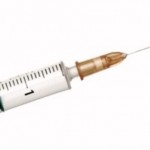 Adults will soon have an equal chance to fight the deadly Japanese encephalitis virus, as Dispur has decided to inoculate them with the vaccine that is so far known to be effective only in children below 15 years.
Adults will soon have an equal chance to fight the deadly Japanese encephalitis virus, as Dispur has decided to inoculate them with the vaccine that is so far known to be effective only in children below 15 years.
The state government’s move comes after the Regional Medical Research Council (RMRC), Lahowal, under the Indian Council of Medical Research (ICMR) in Dibrugarh, established that the Japanese encephalitis vaccine was safe for grown-ups as well.
The research council’s two-year study, which concluded recently, is the first such endeavour in the world. Its findings are yet to be released in the public domain. It has submitted its results to the Union ministry of health and shared it with the state government.
Armed with the findings, the state government will start inoculating adults with the vaccine in five districts prone to the disease.
Confirming the development, state health minister Himanta Biswa Sarma told The Telegraph over phone from Guwahati that Rs 20 crore had been released to procure vaccines from China and that the inoculation process would start from December, depending on availability.
“If China can supply such a large amount of vaccines, we will start the process from December in the districts of Jorhat, Dibrugarh, Tinsukia, Golaghat and Lakhimpur where there are frequent outbreaks of the disease. In Sivasagar, a part of the adult populace has already been vaccinated on an experimental basis,” the health minister said.
Sarma said as the study had established beyond all doubt that nearly 85 per cent of the adult population had developed a defence mechanism, all the districts would be covered.
The government has been vaccinating children below 15 years of age in the state since 2006 It was subsequently found that although the children had become immune, adults were still prone to the disease and the death toll was high among them.
The state health ministry then initiated the project with the Centre.
Dr J.C. Mahanta, director, RMRC ICMR, Lahowal, said the study was conducted at Demow in Sivasagar district.
Nearly 1,200 adults were inoculated with the World Health Organisation-approved Japanese encephalitis vaccine, which was produced in China and supplied by the state government.
“The first blood test was conducted on zero day, that is before the vaccine was administered, to see whether the person already had a high immunity. Then the vaccine was given. After one month, another blood test was conducted to see if the antibodies had developed. Another blood test was done after six months to ensure that the antibodies were still present in a large amount and then again after a year in January 2013 and analysed by April,” he said.
Mahanta said like infants, adults in their sixties and seventies were less able to develop high immunity. However, the rest of the age groups responded very well. “The Centre is also mulling the administration of adult vaccination to the country’s populace, based on our report,” he said.
Doctors of Assam Medical College and Hospital, who were associated with the task of looking into the safety aspect of administering the vaccine to adults, said there were no serious side effects.
Dr Sanjeeb Kakati, the head of the medicine department, AMCH, said he and Dr P. Baruwa (retd) had taken care of the safety aspect while RMRC looked into the efficacy.
“Except for slight itching or a slight fever in a few persons, there was no serious side effect and this could be safely administered to adults,” he said.
The other members of the RMRC team were Dr S.A. Khan and Dr Prafulla Dutta.
Mahanta said the death toll from Japanese encephalitis nearly 60-70 per cent while the rest were affected with other viruses, which resulted in Acute Encephalitis Syndrome and also in deaths.
Source: The Telegraph – India

















